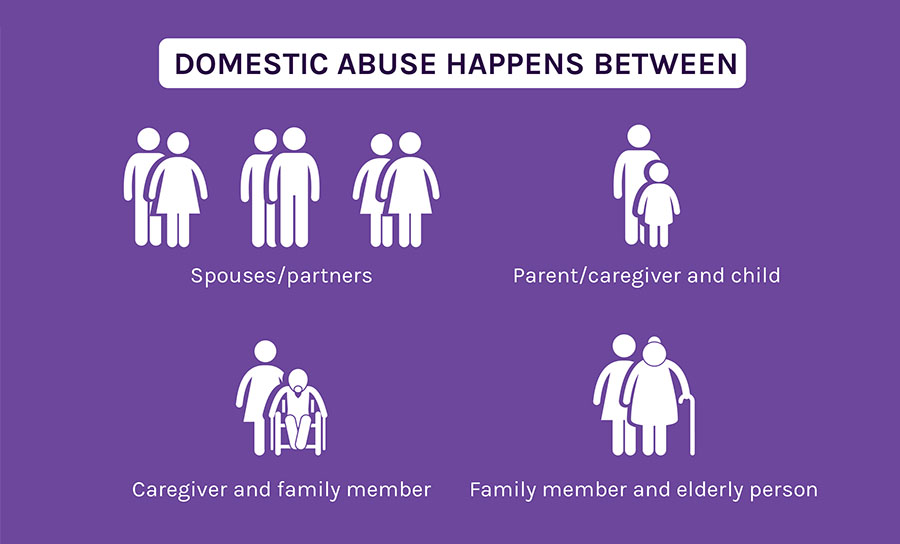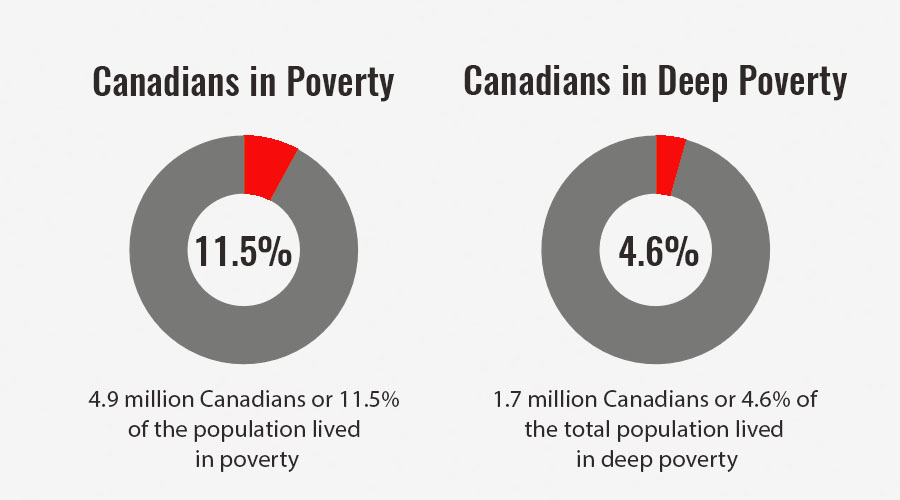Canadians are perceived globally as polite, friendly, educated, and eloquent. Canada seems like a perfect place to visit and live. Which it is – but like everywhere, there are still social problems in Canada today that need addressing for a better tomorrow.
- Mental health issues
- Controversial abortion laws
- Freedom of speech
- Gambling Addiction Issues in Canada
- Family violence
- Violence against women
- Prostitution
- Social policy decisions for drugs and alcohol
- Racial discrimination and the problem of the first nations
- Issues regarding the possession of weapons
- Poverty in Canada
- The creeping problem of pension benefits
This list of current social issues in Canada reads like many nations. How Canadians are tackling these issues often contrasts sharply with their Southern neighbours.
Mental health issues

Even in 2021, despite being one of the most progressive nations on earth, mental health is still stigmatized. It remains one of the top social problems in Canada. Currently, one in every five Canadians is affected each year by mental illness. The most commonly diagnosed illnesses are:
- Depression
- Substance abuse disorder or addiction
- Bipolar disorder
- Eating disorders
- Anxiety disorders
- PTSD
- Schizophrenia

Great work is being done, according to CMHA. But mental illness is still not met with the resources and funding that is allocated to physical illness. Stigma and discrimination still surround the issue of mental health. In particular, addiction counselling, psychologists, and social workers are still needed.
That means almost seven million Canadians have a diagnosis. But with many not seeking a diagnosis, the figure is projected to be one in four or around nine million sufferers.
Preventative measures could save people seeking treatment when the illness has progressed. Arguably the services provided would pay for themselves. Since it’s estimated that $50 billion is lost annually through unemployment and absenteeism, as well as workers are struggling to cope at work.
Controversial abortion laws
Many Western countries have settled their debate on abortion. But in Canada, abortion continues to be one of their most controversial social issues. Those making social policy decisions in government are quietly pro-abortion.

However, an enormous 40% of the Canadian population identifies as Catholic. So, abortion is unsurprisingly one of the most contentious social issues. Not least, since late abortions are legally allowed for any reason.
The Morgentaler ruling of 1988 is Canada’s Roe vs. Wade in many respects. The difference being American pro-choice supporters face an uncertain time currently. Yet, the Morgentaler ruling does not look likely to be challenged soon. In a recent poll, Canadians were almost split in their position towards abortion.
Most Canadians realize that abortion is a deeply personal and often passionate issue. Thus to bring it up in conversation is to start an argument, and so it is rarely discussed in polite society.
Freedom of speech
In Canada, freedom of speech is one of the hotly debated current social issues. Canadians place high regard on their right to free expression. This duly is set out in the Canadian Charter of Rights and Freedoms. It was brought to worldwide attention recently.
Famed psychologist and philosopher Jordan Peterson refused to comply with the proposed C-16 bill. The legislation is aimed at protecting the rights of the LGBTQ community. It also stipulates that others must address a transgender person by a particular pronoun of their choice.

The Toronto professor ignited the tensions and complexities of contemporary society. And his refusal to address a transgender person with their chosen pronoun. Peterson claimed that the bill was a violation of free speech on which Western civilization was built. Mr. Peterson faced no charges for falling foul of the Ontario Human Rights Code. Legal experts argued his refusal to use chosen pronouns was not sufficient to meet the grounds of hate speech.
Gambling Addiction Issues in Canada
Gambling and casinos have become commonplace in Canada since it was legalized in 1969. Slot machines, video lottery terminals, sports bookies, animal racing, and casinos are prevalent.
And allow Canadians to try their luck in a fair and legal game of chance. While popular with many, there are plenty of Canadians who would never buy a lottery ticket.

They consider the pastime to be low class. And those who cannot plan and “make their luck in life“ through hard work and smarts. They may have a point, as the thrill of gambling is addictive.
It’s now one of the current social issues in Canada being tackled. In particular, with the increase of online gambling, the activity has now become problematic. Support groups are now springing up to help those addicted. And even rehab is required to treat those who are severely affected. Fortunately, large Canadian online casinos, such as the well-known Casinovalley.ca, are aware of their responsibility and provide their players with the Canadian Gambling Addiction Help Guide.
Family violence
Family violence is one of the most complex issues facing families and communities in Canada, and its consequences can be far-reaching. Statistics on this violence in Canada are on an upward trend, mainly due to increased crimes against children and youth. Since 2016, these statistics have begun to rise again, until 2019.
Prior to that, the rate declined by nearly 19% between 2009 and 2016. Similarly, a global pandemic has been cited as one of the problems.

However, between March and October 2020, the number of some criminal incidents dropped again. At the same time, threats against family members increased by 2%.
Police reports describe trends in family violence, including rates of spousal violence against women and the elderly, and in some cases, men.
Violence against women
Violence against women remains one of the current social issues in Canada.
Approximately 25% of violent crime reported to Canadian police is family abuse.
The Canadian Women’s Foundation estimates that over 6,000 women and children sleep in shelters every night, while a further 300 are turned away. First nation Canadians are around six times more likely to be killed by their partner than non-indigenous Canadian women. And one Canadian woman is killed every six days by an intimate partner.

These statistics highlight a social issue in Canada that is still a major concern. The CWF says even more work needs to be done. Examples of such action to improve this social issue include early intervention of reporting crime. Attitudes towards women and available support services also need to improve.
Prostitution
The selling of sex is often considered to be the first trade. But as in Canada and with other nations, it is one of the social problems that is deemed to be taboo. The selling of sex is highly stigmatized in Canada. And it is considered the domain of the impoverished and drug addicts. Sex workers are often abused by pimps, physically and economically, despite this being illegal.

Charitable groups in Canada have stepped in to help some of these sex workers escape their social problems. But many view the “improvement” of conditions for sex workers as a move towards normalizing an offensive trade.
Social policy decisions for drugs and alcohol

Drugs and alcohol are a part of virtually every society. Like other nations, in Canada, legislators have grappled with one of the most challenging social issues there is. In twentieth-century Canada, prohibition was used to tackle this most contentious of social problems.
Most drinkers not native to Canada would likely be baffled and annoyed by the restrictions on the sale of alcohol.
Conversely, marijuana possession has been legal since 2018.
Visiting smokers to Canada would be impressed and delighted by the pot shops, which can be found in urban areas.
Despite today’s opioid crisis, the government is not eager to crack down on unlicensed sources of marijuana sales. So during 2020, more than 1,500 people died of overdoses.

The reason for this may well be that only about 30% of Canadians who use marijuana buy it from legal stores. The rest, however, prefer both legal and unlicensed establishments.
Racial discrimination and the problem of the first nations
Racial discrimination against the first nations has been one of the ongoing social issues faced by generations in Canada. The indigenous population is still facing social and economic problems in Canada.
At the same time, other Canadians and immigrants prosper. When it comes to social issues, the first nations population of Canada suffers high rates of social problems. These include incarceration, poverty, unemployment, suicide, addiction, and health issues.
The rights of indigenous people and the desires of the industries such as oil are often in stark conflict. Many of these problems are rooted in racism and discrimination owing to current high levels of poverty. While the government may have accepted responsibility for injustices, the issue remains.
Issues regarding the possession of weapons

Similarly to the US, in Canada, hunting is popular, but the possession of firearms is one of their most divisive social issues. Owning a gun is far less sport, and more so a necessity, with bear attacks still possible in rural areas. Conversely, as much as a weapon is a defence against wild animals, gun massacres are still prevalent in Canada.
In 2018, ten people were killed in the Toronto van attack; a further two killings happened later in the year. Four shootings were recorded in 2019, which bolsters the argument of those against gun ownership.
More recently, on May 29, 2021, a man was shot and killed. According to the police press service, it all happened in Montreal, and he was 22 years old. Also, law enforcement officials confirmed to reporters that this is the 10th murder since the beginning of 2021.
Prohibition on possession of weapons
Around seven million Canadians own guns and are recreational hunters.
But typical city-dwelling Canadians disapprove of guns. They point to gang violence and massacres as the reasons for the outlawing of gun ownership in the nation.
So, as of May 1, 2020, Prime Minister Justin Trudeau confirmed that a ban on the possession of assault weapons would be enforced. More than a thousand weapon types have been added to the list. However, despite this law, the number of murders with firearms has not decreased significantly.

Canada does have rigorous checks in place for gun licenses and ownership. Unlike the US, automatic and semi-automatic guns are banned. So, when an unfortunate massacre occurs in Canada, the numbers murdered are usually in single digits.
Poverty in Canada
In Canada, there are nearly five million people living in poverty, and it can affect anyone. Poverty affects people of all ages, economic backgrounds, and nationalities. Poverty is a complex issue related to unemployment, return rates on investments, sub-standard housing, health policy, and education.
Despite Canada’s reputation as a prosperous nation, millions of Canadians are still struggling to meet their basic needs. In order for people to get out of poverty, they need help from others and government support. Poverty costs us all because it results in high-stress levels, poor health outcomes, social exclusion and lower educational achievement. People’s potential is often limited in these ways.

Here are some statistics to date:
- 4.9 million are below the poverty line.
- 1.7 million or almost 5% of the total Canadian population, live in deep poverty.
- Job insecurity has increased by 50% in the last 20 years.
- Even though the population has increased by a third in the last 25 years, investment in housing has declined.
The creeping problem of pension benefits

The ageing population means that pension benefits are another of the major social issues affecting those in Canada today. In the past, those contributing to pensions and those receiving the benefit resembled a triangle.
The base of the triangle represents a steady source of contributors and those accessing pensions being far fewer. Now, the triangle is upended.
Many younger people are not contributing as they are part of the freelance “gig” economy. And those relying on the benefit are living for decades past the age of sixty-five. The math simply doesn’t add up when the population relies on state income for a period almost as long, if not longer, than the time spent contributing.
Canadians face the same uphill struggle as other nations to try and meet the demands of an ageing population. The pension system in Canada allows for nationals and non-nationals who have resided in the country for more than ten years to receive a pension.
The amount allocated is dependent on the amount paid into the fund; the minimum amount is less than $740 and the maximum amount around $1200 as of 2021. This amount would leave many in relative poverty. The minimum amount is around $100 more than the maximum unemployment paid.

